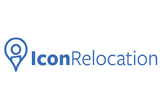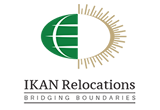Why you need to know – right now – about relocating to India
The Festival of Global People will showcase how to build, manage and engage global teams. The panel discussion, India: Opportunities and Challenges, with leading experts is among the must-see sessions.
The rising importance of India on the world stage and therefore global mobility is also a view shared by Rohit Kumar, managing director of IKAN Relocation, which is headquartered in New Delhi with offices in Mumbai, Pune, Bangalore, Hyderabad, Ahmedabad and Chennai, and a founder member of the Reloc8 Asia Pacific Group relocation network. IKAN is also a member of the TIRA network.Speaking to Relocate ahead of next week’s Festival of Global People and the panel discussion he is participating in, Mr Kumar set out why India looks set to deliver on its reputation as a future global power, and what this means for HR, global mobility managers and relocation service providers.
India as global investment destination
India’s encouraging economic data shows the extent to which India is an attractive place to do business and therefore likely to make an even bigger impact on global mobility than it is now. “The Indian economy is growing reasonably fast, at around 7-8% per annum for the next 10 years,” says Mr Kumar. “In effect, that means GDP will almost double in the next five years from nearly US$3 trillion today to close to US$5 trillion. This is a phenomenal number.“A lot of this growth will come from international companies, particularly American and Japanese companies. Their faith in China is shaken as costs and conditions there become more difficult. From a geopolitical perspective, they see India as their next logical manufacturing base.“I know for a fact there are at least 200 US companies who are waiting to shift their operations from China to India.”Watch exerpts from the Festival's India panel:As well as a competitive place for manufacturing and a leading global source of talent in key growth areas, like technology and outsourcing, India’s government policies are also making the country an attractive place for overseas investment. “India is ramping up defence preparedness,” observes Mr Kumar. “The government has made a strategic decision to end imports of weaponry and is encouraging manufacturers to set up in India, so it doesn’t have to rely on importing.“This augers well for inward investment, with global defence companies like Lockheed Martin and Boeing looking to set up operations in India. Not just for sales to the Indian government, but also for global distribution.”What does this mean for global assignees inbound to India?
With India’s skilled and increasingly highly educated workforce in demand domestically and around the world – and with cost control critical to western companies – the old expatriate models that were common among US companies are unlikely to be replicated in the coming years.For the moment, while government elections might be causing the fingers of decision-makers in international companies to hover momentarily over the “send” icon for investment and mobile employees into India, Mr Kumar believes that the next few years will see more long-term assignments into the country – as well as a continuing rise in short-term stays and business travel.Global mobility expertise is therefore set to play an even more critical role in ensuring that assignments of all durations are a success. But, contends Mr Kumar, it’s a role that requires a shift in mindset to deal with the realities of a move to the rich diversity of India’s booming cities.How should global mobility professionals respond?
It’s hard to imagine in a country with a land mass approaching 3.3 million square kilometres that the cost and a lack of suitable accommodation and space – both personal and green – are among the most pressing practical challenges for many relocatees to India currently.Added to this are how to navigate the social, linguistic and cultural nuances so critical to making a host destination a home, and the differences in the range of climate, transport options and reliable infrastructure. It’s against this background that Mr Kumar would like to see more realism for employers of globally mobile populations inbound to India.“As a destination service provider, we’ve seen first-hand how companies are reducing the number of days support they offer their assignees,” he says. “This is often self-defeating. “A company might save $500, but leaving a family on their own will leave them frustrated and exasperated. The burden of this experience will have a knock-on effect on the productivity of the employee in their new role in India. “Global mobility managers have to come to terms with the need for assignees to India to have complete support. With accommodation for example, you rent a space from a landlord and you return a space to the landlord, as is. Landlords, unlike in some other countries, don’t take responsibility for maintenance of the apartment. All the maintenance and running costs are the tenant’s responsibility, which is why offering tenancy management to assignees can be a huge help to them settling in.” With the cost of land outstripping the financing and running costs long-stay aparthotels and corporate housing developers and operators can afford in the areas needed, home-finding services – and expectation management – need to be key considerations, says Mr Kumar.What is the impact of these factors on assignment type?
Perhaps because of these factors, extended-business-travel arrangements are among the most common assignment types the IKAN Relocation offices are seeing. Yet even here, given the travel time between home and office, the lack of suitable accommodation because landlords are usually not willing to rent for less than a year, plus much housing in India being “unfurnished”, this solution still has its challenges – no matter how much a globally mobile employee is prepared.“Business travellers can find staying in India a real challenge,” says Mr Kumar. “More often than not, employers will not pay for five-star hotels, which cost at least US$200 per day and upwards for long stays. But then serviced apartments and corporate housing are also often a long way below the standard people are prepared for, although can cost as little as a US$1,000 a month rising up to US$5,000 per month.”It is about managing expectation to some extent, “but it is very difficult to explain to a first-time traveller exactly what it is going to be like”. The reality is that even established global chains have a very limited presence in India and in its tier one cities. The question then becomes how can employers manage this challenge in a way that supports travellers and relocatees, balances cost and engagement, and ultimately encourages successful assignments?India outbound
This same question is framing considerations around another key trend for global mobility in India. The country’s bountiful IT and tech talent is also a population very much on the move and shaping the global mobility landscape outbound in Europe and the US.With the danger of assignment failure or loss of talent to competitors, global mobility managers are a vital link in the chain to ensuring successful relocations and engagement with the assignment’s objectives.In this growth area, Mr Kumar is also seeing the rise of more mandated assistance in addition to the standard lump-sum. “The lump-sum approach is very popular among outbound workers from India to Europe and the US,” says Mr Kumar. “It is a great incentive for people to take the assignment in the first place. But it’s also about supporting people so they can be productive when they arrive.“Now, in order to help a family settle and so assignees can fully prepare for the new role, companies are offering some mandated benefits to the individual and their family to help them settle in and be productive when they arrive.”Overcoming the challenges in- and out-bound
Despite the obstacles, given India’s overarching culture of helpfulness, an issue mobile populations globallyand domestically won’t have to worry about is finding the right help.“Indian people are very friendly and welcoming, and family oriented,” concludes Rohit Kumar. “There is always someone to help. But, often it’s just a case of choosing the right help locally to make sure problems are solved in the best way. “India is a paradox. There are multiple answers to the same question, or a multitude of solutions to a single problem. Some solutions can actually complicate the situation further, so seeking support from a validated source is best. This also ensures that the source has no conflict of interest in their intent to assist.”Festival Sponsors:
Festival Supporters:
Subscribe to Relocate Extra, our monthly newsletter, to get all the latest international assignments and global mobility news.Relocate’s new Global Mobility Toolkit provides free information, practical advice and support for HR, global mobility managers and global teams operating overseas.
 Access hundreds of global services and suppliers in our Online Directory
Access hundreds of global services and suppliers in our Online Directory
©2026 Re:locate magazine, published by Profile Locations, Spray Hill, Hastings Road, Lamberhurst, Kent TN3 8JB. All rights reserved. This publication (or any part thereof) may not be reproduced in any form without the prior written permission of Profile Locations. Profile Locations accepts no liability for the accuracy of the contents or any opinions expressed herein.









































